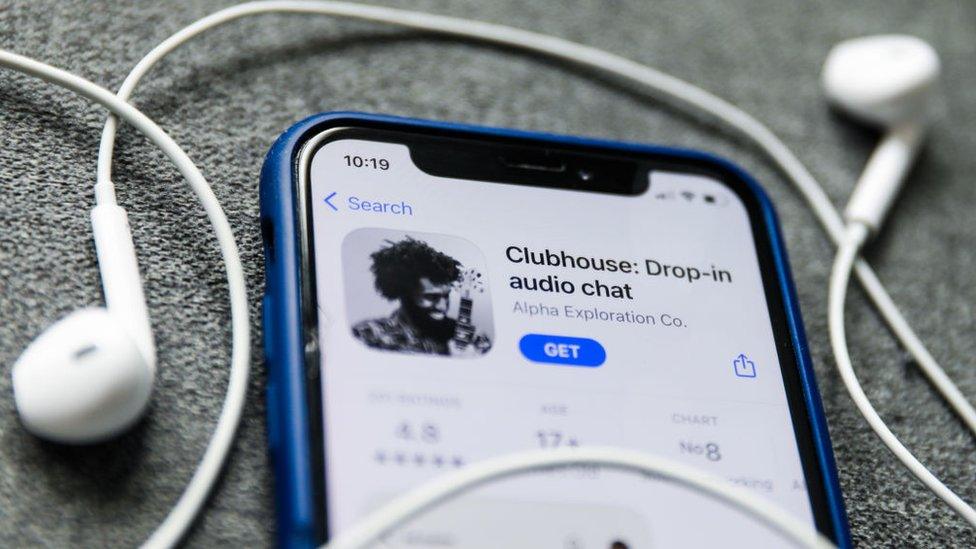Clubhouse: What is it and how do you get invited?
- Published
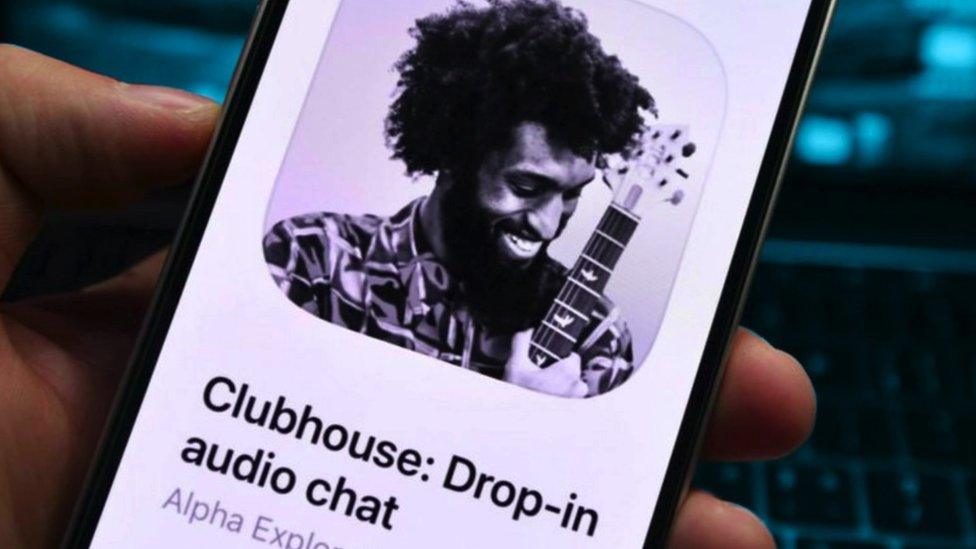
Less than a year old, Clubhouse already ticks the boxes for being the next big thing:
huge hype
super-famous users
controversy
bans
a massive valuation (despite not making any money, obviously).
Here's what you need to know.
Why should I care?

Tesla and SpaceX billionaire Elon Musk has been using Clubhouse
It's causing waves around the world, from the US (where the app started), to China, Brazil and Turkey.
Wherever you are, you'll probably be hearing about it soon.
Some of the world's super-rich and famous are already big names on the app:
technology giants Elon Musk and Facebook's Mark Zuckerberg
rappers Drake and Kanye West
media mogul Oprah Winfrey
And inevitably this rush of hype and fame has been followed by money, with venture capitalists already valuing Clubhouse at over $1bn (£0.7bn), according to the Financial Times, a fair chunk of change for an app that currently has no way of making money.
How does Clubhouse work?
What makes the app stand out is the lack of text, pictures and videos.
It is audio only.
Also, everything happens live, in real time.
You can start a virtual room yourself or join one other people are speaking in.
Generally, a certain number of people only can speak.
Everyone else has only the option to listen.
But you can raise your hand and ask to be allowed to talk.
Within the app, conversations aren't recorded or made available to play back later.
So you have to catch everything as it happens.
What's so good about it?
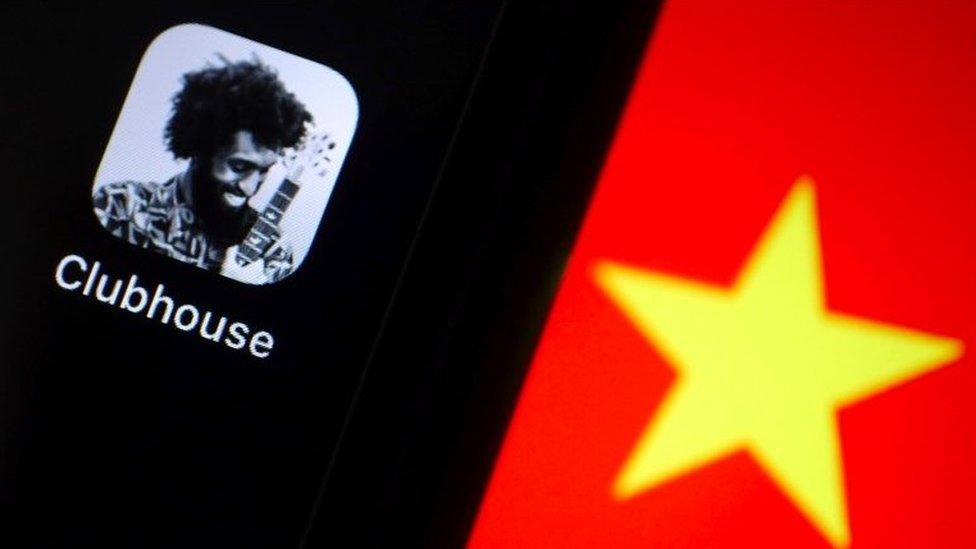
Clubhouse boomed in popularity in China but was then banned
The audio-only format gives it the intimacy of listening to a podcast or a talk-radio show.
And although many people just use the app to speak to their friends, you can hear famous and influential people such as Tesla and SpaceX billionaire Mr Musk casually chatting as if you were in the room with them.
A possibly unforeseen advantage is, as a new app, it has managed to avoid the restrictions some governments have placed on existing big social-media platforms.
But it has already been banned in China.
The news site Quartz reported Chinese Clubhouse members had been "using the space to talk about topics that would otherwise be censored... such as democracy", turning the invite codes into hot merchandise.
And already, copycat apps are being launched to take advantage of this perceived rise in audio social networks.
Can I download it now?
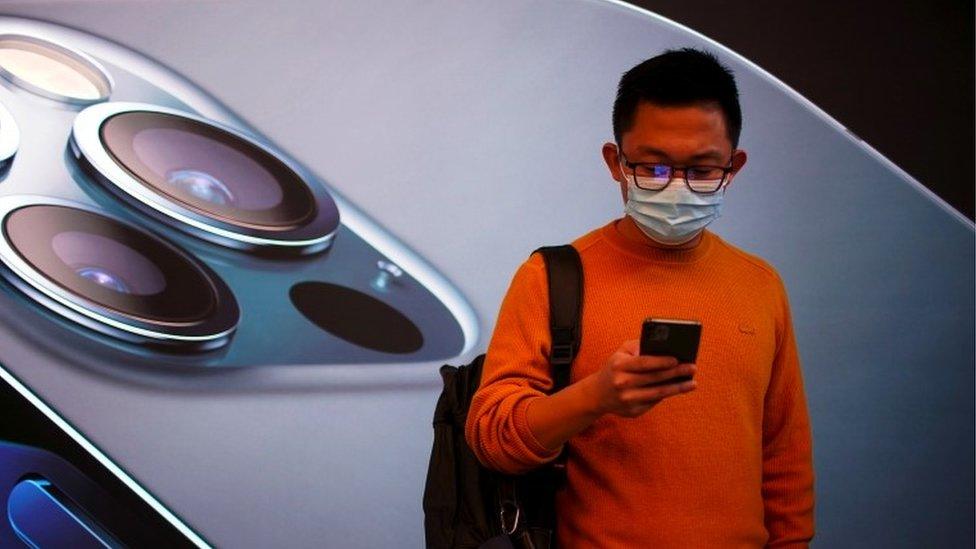
You have to have an iPhone to run Clubhouse
It's not available on Huawei, Samsung, LG or other Android phones
And even iPhone owners can't just start dropping in on conversations after downloading it from the App Store.
Clubhouse is currently by invitation only.
At first, existing users have only two invitations to send out.
But that doesn't mean it won't be heading your way soon.
The company is working on plans to open it up to the masses.
What are the downsides?
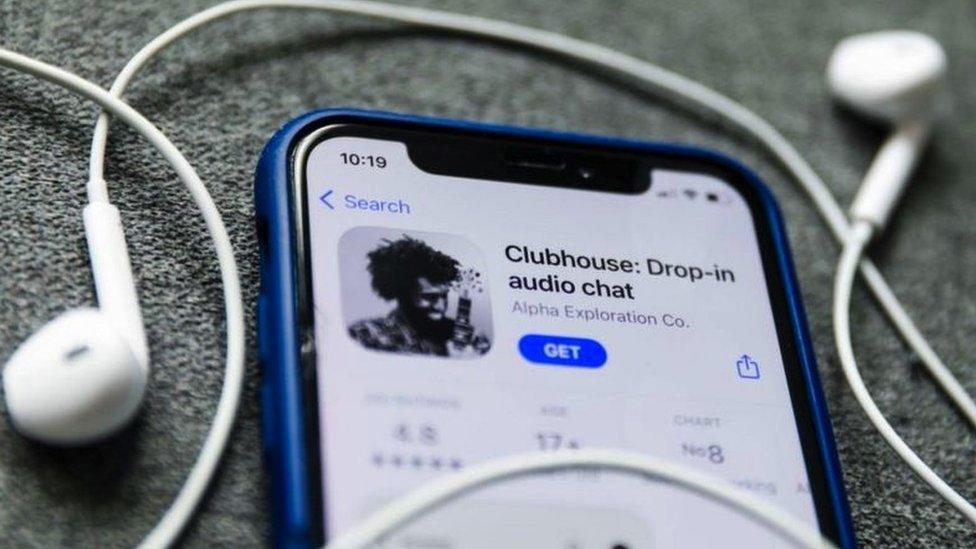
Clubhouse has a more intimate feel than most social-media apps
Like pretty much every social-media app in history, Clubhouse has been hit with questions over privacy.
The company says it is reviewing cyber-security, after research from Stanford Internet Observatory (SIO) suggested user data was being routed through Chinese servers.
It is also dealing with the fallout after someone showed it was possible to scrape conversations from multiple rooms and publish them outside of the app.
"Clubhouse cannot provide any privacy promises for conversations held anywhere around the world," SIO director Alex Stamos told Bloomberg.
For most users, this won't be an issue as the app is all about starting a conversation and getting large audiences listening live.
But there's also nothing stopping anyone in the audience recording the audio as it happens.
And campaigners have also raised questions over the app's access to the phone contacts of those who join.
Will it be the next big thing?
Clubhouse has only two million active users.
It has been growing rapidly.
But social media is tricky business.
At first glance, Clubhouse appears simply to be a good idea with no proprietary technical tricks behind it.
And that means it can easily be copied by its competitors.
Twitter is already working on its own version of rooms, called "spaces".
So Clubhouse does not have long before more established players may start muscling in.
- Published24 February 2021
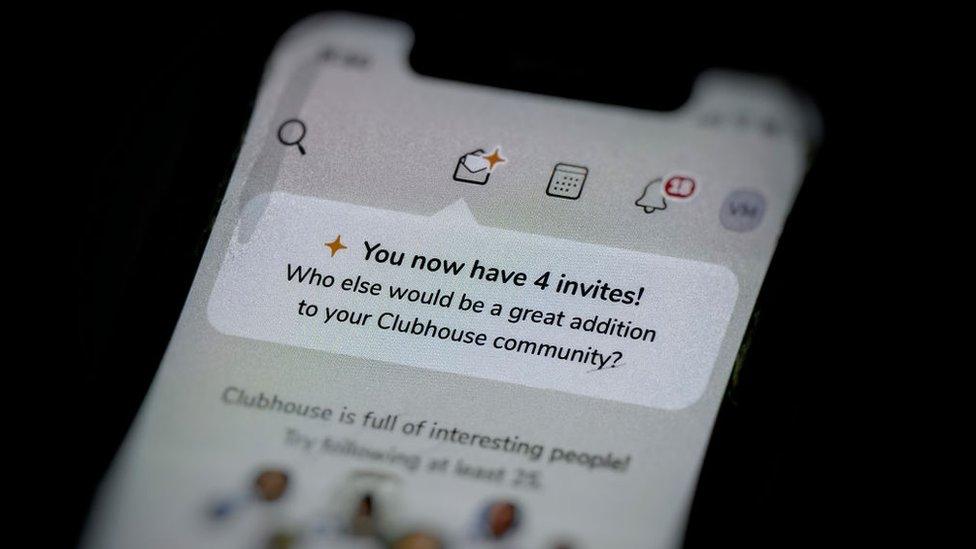
- Published19 February 2021
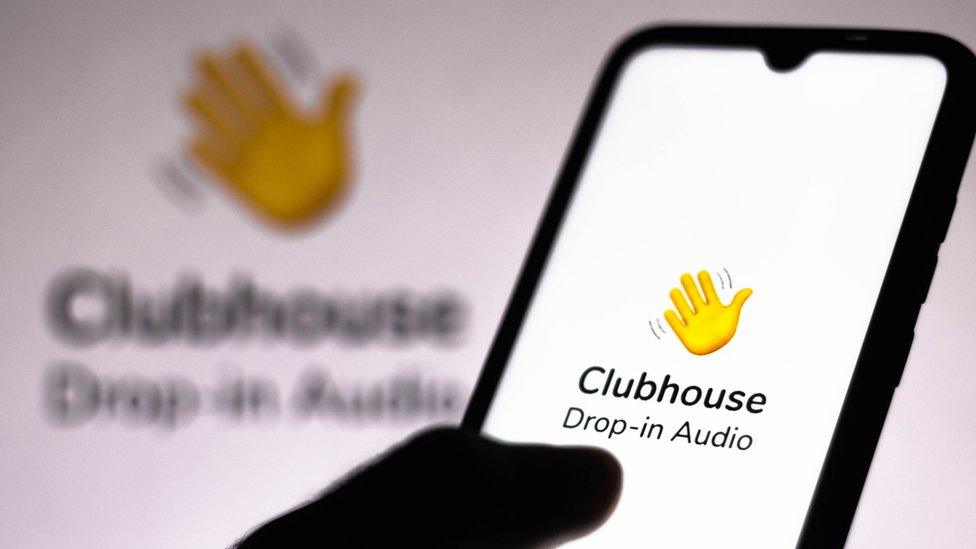
- Published8 February 2021
